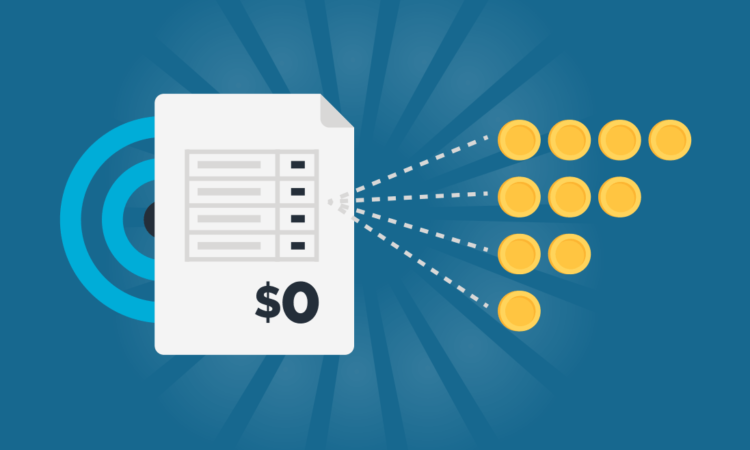Personal finance is something everyone has to cope with, but there’s no denying the subject is often fraught and confusing. There are so many different financial products and so many different ideas regarding what constitutes “good” financial management that just trying to keep up with developments, never mind actually managing your finances, can feel like a second job.
Given that personal finance is a subject already liable to overloading you with information, the introduction of a new concept has to be done for a reason; it has to be genuinely beneficial and helpful, or it’s just more distracting noise in the background. We believe that zero budgeting is a concept that meets the criteria for importance, and if you have previously struggled with the management of your personal finances, it’s definitely an idea you’re going to want to learn more about.
What Is Zero Budgeting?
Zero budgeting is, when stripped back, rather simple: you aim to create a budget that has no leftover money. Every penny of your income is assigned to a particular financial area.
Isn’t That Restrictive?
No, because the “financial areas” can be as flexible as you want them to be. For example, as well as the standard budget sections – your mortgage or rent, your utilities, savings, food, groceries, fuel, and so on and so forth – you can include specific budgetary areas for other expenses, including things like:
- Entertainment
- Hobbies
- Treats and self care
- Pet care
- Clothes and shoes (potentially even separately)
So zero budgeting isn’t about restricting your access to money; it’s just about ensuring your entire income has designated particular purposes.
It’s also worth noting that many people who zero budget have allowed these secondary, non-essential budget sections to be flexible. So, if you got halfway through the month and realized you wanted to go on a spa weekend, you could borrow from the “Hobbies” budget section and bolster “Treats and self care” in order to afford this.
What Are the Benefits of Zero Budgeting?
- Zero budgeting is an excellent way of managing your money in a more mindful way. It perfectly showcases the way that you can move money between areas, which may lead you to reflect on your spending habits and priorities.
- Zero budgeting ensures that you are able to meet all of your outgoings every month, as you will have to look ahead to anticipate your costs and then designate a section of your budget accordingly.
- Zero budgeting helps to prevent absent-minded spending, as each budget area is tightly controlled and finite.
What Are the Negatives of Zero Budgeting?
- Zero budgeting can only work with income and expenditure that you can predict in advance, which can make it difficult to adhere to if your income is variable.
- Zero budgeting cannot prevent financial issues caused by unexpected costs, though you can still use the likes of snappypaydayloans.com to help manage surprise costs that you experience during the month.
- Zero budgeting can be rather time consuming, as you will need to setup a strict schedule of where every penny is going every time you receive money. If you earn a monthly wage then this is usually manageable, but if you’re paid more frequently, it can mean spending a lot of time hovering over your finances and ensuring each section is appropriately filled.
How Is the Money Separated?
Above, we’ve talked about designated budgeting sections, each of which has a designed purpose. Most people who use zero budgeting make these sections very literal, usually by opening multiple instant-access savings accounts with their existing provider. Each account is then given a name (“Clothes”, “Self Care and Treats”, “Groceries”, and so on and so forth); when the money is required, it can just be quickly transferred back to the person’s main current account and used as normal.
Does Zero Budgeting Work for Everyone?
Not necessarily; some people find the practice of juggling multiple accounts boring, or they simply struggle to adhere to the budget areas they have outlined at the start of the month.
However, zero budgeting is a genuinely useful tool if you have felt you need to be more mindful of your spending, and may help if you’re looking to control the amount you spend on non-essential purposes. Given the practice is relatively easy to set up – most savings accounts can be opened online in a few minutes – it may well be worth trying if you believe you could benefit from a tighter control over where exactly your money goes each month.





